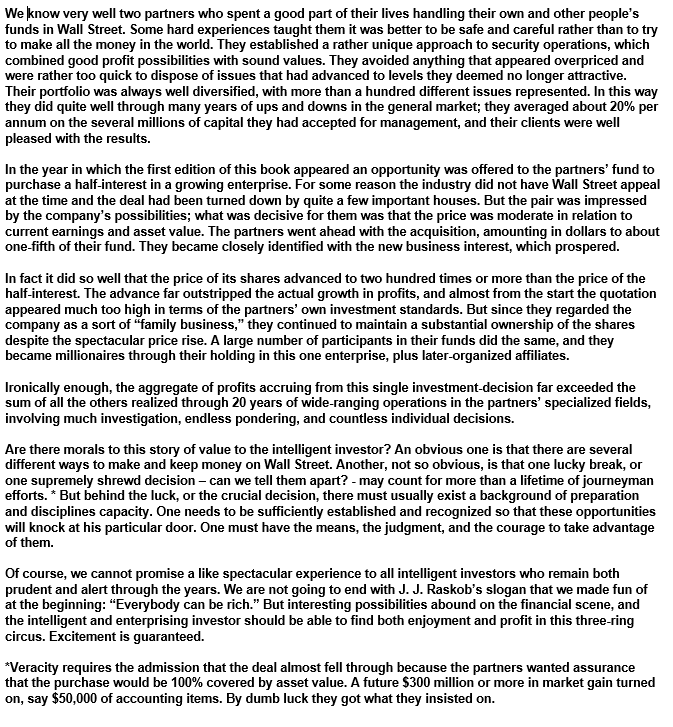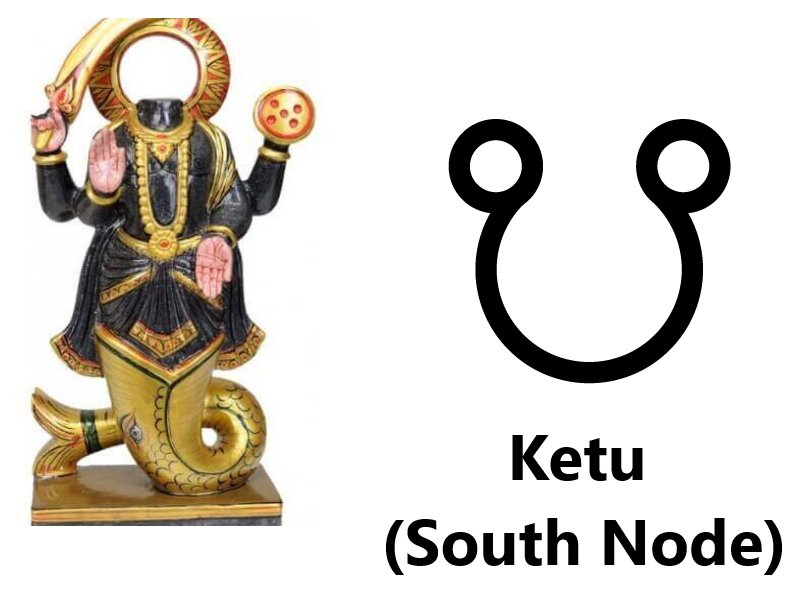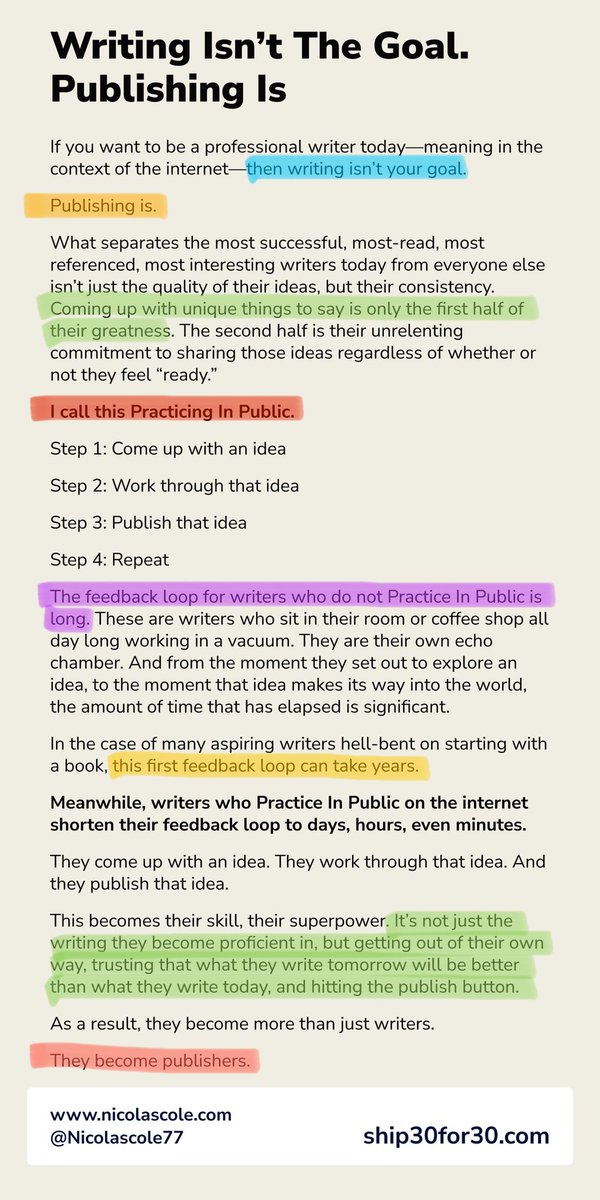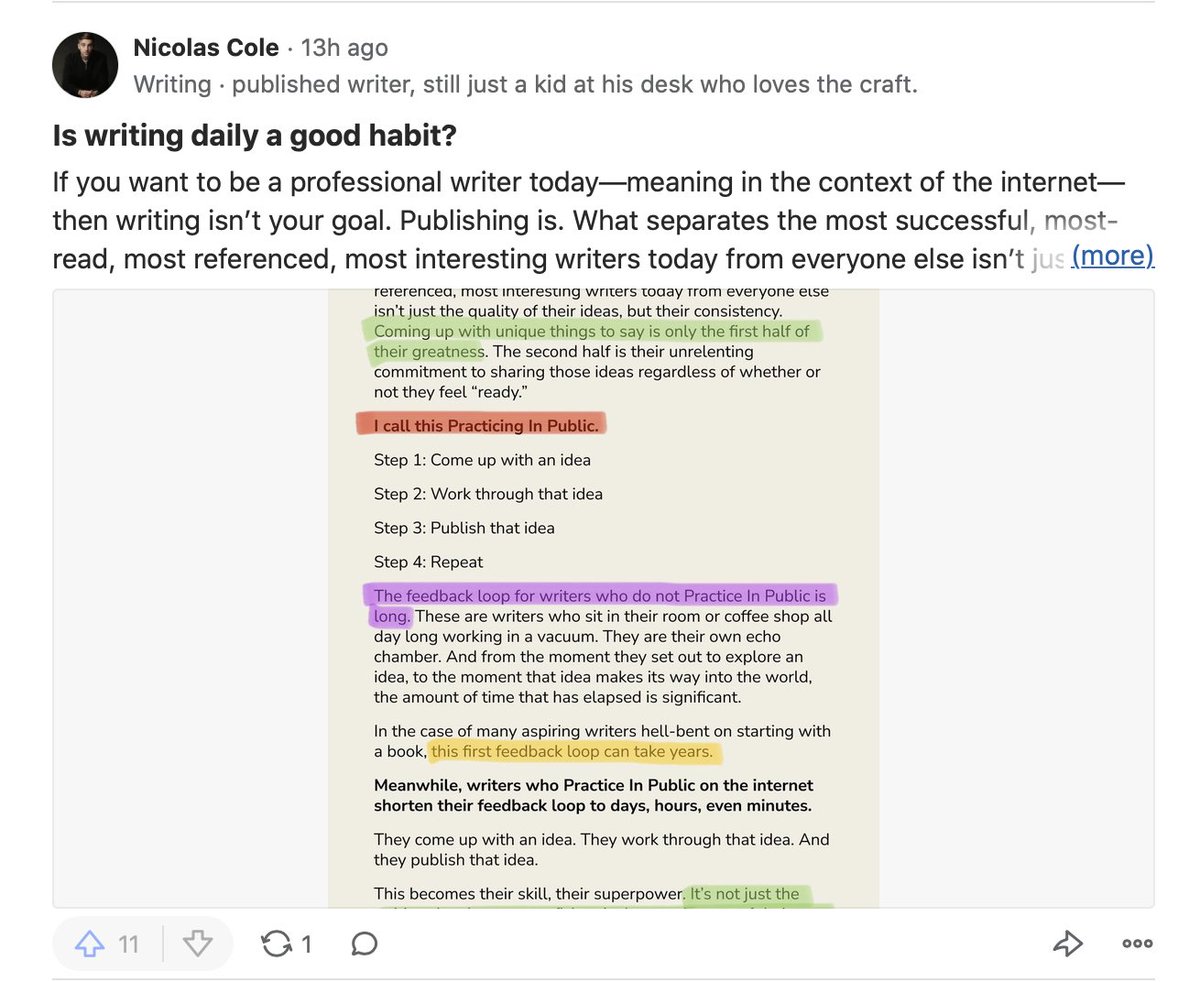This investment did so well that the price of its shares advanced to two hundred times or more than the price of the half-interest by 1971/1972 2/
Ben Graham managed to compound money at 20%/year for 20 years at his partnership following a value investing strategy
In 1948 he acquired 50% stake in GEICO. It had to be distributed to his investors
They almost didn't make the investment due to some accounting questions 1/

This investment did so well that the price of its shares advanced to two hundred times or more than the price of the half-interest by 1971/1972 2/
An obvious one is that there are several different ways to make and keep money on Wall Street 4/
But behind the luck, or the crucial decision, there must usually exist a background of preparation and disciplines capacity. 5/
More from Dividend Growth Investor
More from Economy
1. HUGE DISCOVERY!
What would have been exposed if @GenFlynn hadn't been impeded by corrupt FBI, DOJ and the Obama White house?
He'd have exposed CHINA and their laundering of IRANIAN OIL MONEY!
Read the thread below for the back story on how they went after Flynn.
What would have been exposed if @GenFlynn hadn't been impeded by corrupt FBI, DOJ and the Obama White house?
He'd have exposed CHINA and their laundering of IRANIAN OIL MONEY!
Read the thread below for the back story on how they went after Flynn.
1. As promised.
— \U0001f1fa\U0001f1f8 \U0001d7dc\U0001d7d8\u210d\U0001d556\U0001d552\U0001d555 \U0001f1fa\U0001f1f8 \u2b50\u2b50\u2b50 \U0001f1fa\U0001f1f8 (@40_head) December 2, 2020
A deep dig covering years of research. This is going to take you committing some real time to get through. What's THIS all about?
A coup. Murder. Treason. Laundering gold for Iran...I think it will blow your mind.




















